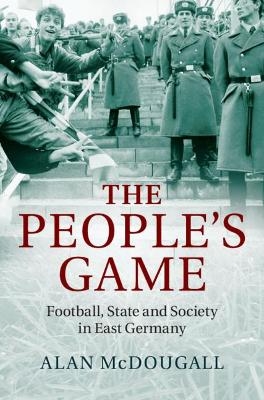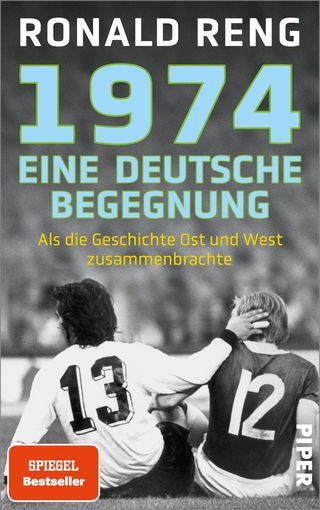
The People's Game
Football, State and Society in East Germany
Seiten
2014
Cambridge University Press (Verlag)
978-1-107-05203-1 (ISBN)
Cambridge University Press (Verlag)
978-1-107-05203-1 (ISBN)
The People's Game is the first comprehensive history of football in East Germany. McDougall offers fresh perspectives on how the country's most popular sport undermined communism. The book combines in-depth knowledge of the GDR with a passion for football, and will appeal to GDR specialists, sports historians and students alike.
Sport in East Germany is commonly associated with the systematic doping that helped to make the country an Olympic superpower. Football played little part in this controversial story. Yet, as a hugely popular activity that was deeply entwined in the social fabric, it exerted an influence that few institutions or pursuits could match. The People's Game examines the history of football from the interrelated perspectives of star players, fans, and ordinary citizens who played for fun. Using archival sources and interviews, it reveals football's fluid role in preserving and challenging communist hegemony. By repeatedly emphasising that GDR football was part of an international story, for example, through analysis of the 1974 World Cup finals, Alan McDougall shows how sport transcended the Iron Curtain. Through a study of the mass protests against the Stasi team, BFC, during the 1980s, he reveals football's role in foreshadowing the downfall of communism.
Sport in East Germany is commonly associated with the systematic doping that helped to make the country an Olympic superpower. Football played little part in this controversial story. Yet, as a hugely popular activity that was deeply entwined in the social fabric, it exerted an influence that few institutions or pursuits could match. The People's Game examines the history of football from the interrelated perspectives of star players, fans, and ordinary citizens who played for fun. Using archival sources and interviews, it reveals football's fluid role in preserving and challenging communist hegemony. By repeatedly emphasising that GDR football was part of an international story, for example, through analysis of the 1974 World Cup finals, Alan McDougall shows how sport transcended the Iron Curtain. Through a study of the mass protests against the Stasi team, BFC, during the 1980s, he reveals football's role in foreshadowing the downfall of communism.
Alan McDougall is Associate Professor of Modern European History and European Studies at the University of Guelph.
1. Introduction; 2. Football reconstructed; Part I. Players: 3. Footballers' lives; 4. The national team; 5. Club football at home and away; 6. Football and the Stasi; Part II. Fans: 7. Spectatorship in the Ulbricht era; 8. Fan culture in the Honecker era; 9. The 'wild East': hooliganism in the GDR; 10. 'Crooked champions': the BFC problem; Part III. The People's Game: 11. Football and everyday life; 12. Women's football; 13. East plays West: amateur matches across the Iron Curtain; 14. Football for all? The provision of facilities; 15. Conclusion; Bibliography; Index.
| Zusatzinfo | 1 Maps; 20 Halftones, black and white |
|---|---|
| Verlagsort | Cambridge |
| Sprache | englisch |
| Maße | 157 x 235 mm |
| Gewicht | 730 g |
| Themenwelt | Sport ► Ballsport ► Fußball |
| Geschichte ► Allgemeine Geschichte ► Zeitgeschichte | |
| Geisteswissenschaften ► Geschichte ► Regional- / Ländergeschichte | |
| Geschichte ► Teilgebiete der Geschichte ► Kulturgeschichte | |
| ISBN-10 | 1-107-05203-3 / 1107052033 |
| ISBN-13 | 978-1-107-05203-1 / 9781107052031 |
| Zustand | Neuware |
| Informationen gemäß Produktsicherheitsverordnung (GPSR) | |
| Haben Sie eine Frage zum Produkt? |
Mehr entdecken
aus dem Bereich
aus dem Bereich
als die Geschichte Ost und West zusammenbrachte
Buch | Hardcover (2024)
Piper (Verlag)
24,00 €


